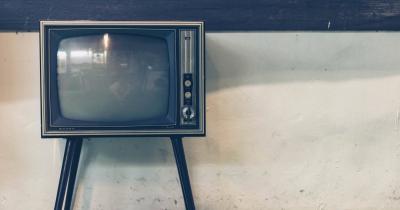
Black History Month: Expanding My View of the Black Experience
Watching television can be a window into experiences beyond your own, but it shouldn't be a passive act—keep in mind who is controlling the race narrative.

I grew up in white suburbia. I wasn’t aware of it at the time but looking back I realize how white normative my experience was. It’s not that a white ideal was actively promoted, but I have no memory of race and Blackness ever being a part of the conversation. The month of February – when Black History was the theme of book reports and bulletin boards – was the exception. I had Black classmates, friends, and teachers, but outside of history class there were no discussions about how their experiences were different from my own.
The experiences of Black families entered my life mainly through sit-coms and movies. Every Friday night, like most kids of the 90s, I would watch Family Matters. Throughout the week I’d tune into Black television shows like The Fresh Prince of Bell Air and A Different World. In the theaters, it was Sister Act and Bad Boys. Because these shows were my primary source of learning, I was woefully ignorant. I am now painfully aware that I was getting a filtered image of what it meant to be Black in America.
Even if a show cast Black actors, writers or producers, it was still filtered through an industry in which mostly white people had the power and controlled the narrative. I saw a limited view of what they wanted me to see of the Black experience – a family with successful, extremely educated parents, relatively happy homes, happy marriages, and drama for the sake of comedic effect.
As an adult, I know now that these do mirror real-world experiences, but there was also a whole spectrum of the Black experience that was being left out, only allowed to come through in a sit-com’s requisite big drama moment of the season, like Eddie Winslow being pulled over by the cops or Will Smith trying to connect with an absent father.
I still watch these shows and I appreciate the comedy and the sentimentality. But I know I need to fill in the gaps and be more conscious of the media I consume today, and about who is controlling the race narratives, who is controlling the story, what tropes are being promoted, and what stereotypes are being reinforced.
Watching a show is not a passive act. Today I take the time to ensure that I am supporting true Black stories; seeking out shows that portray the stories that are messier, more complicated, stories that are even more important for me to understand. By paying attention to who is creating the media I am consuming and looking at the audience it is reaching, by talking to friends and colleagues, I am seeking out a varied source of information and experiences, this is just one way I can work to deepen my understanding.
Black History month is a reminder for me to dive deeper, make deliberate choices, and to continue to work to expand my view throughout the year.
About the Series
Since 1976, the United States has designated February as Black History Month to honor the often overlooked achievements of black Americans throughout the country’s history. Demos is honoring Black History Month by highlighting reflections from some of our staff. We welcome you to join the conversation by sharing your thoughts with us on social media using #blackhistorymonth.

